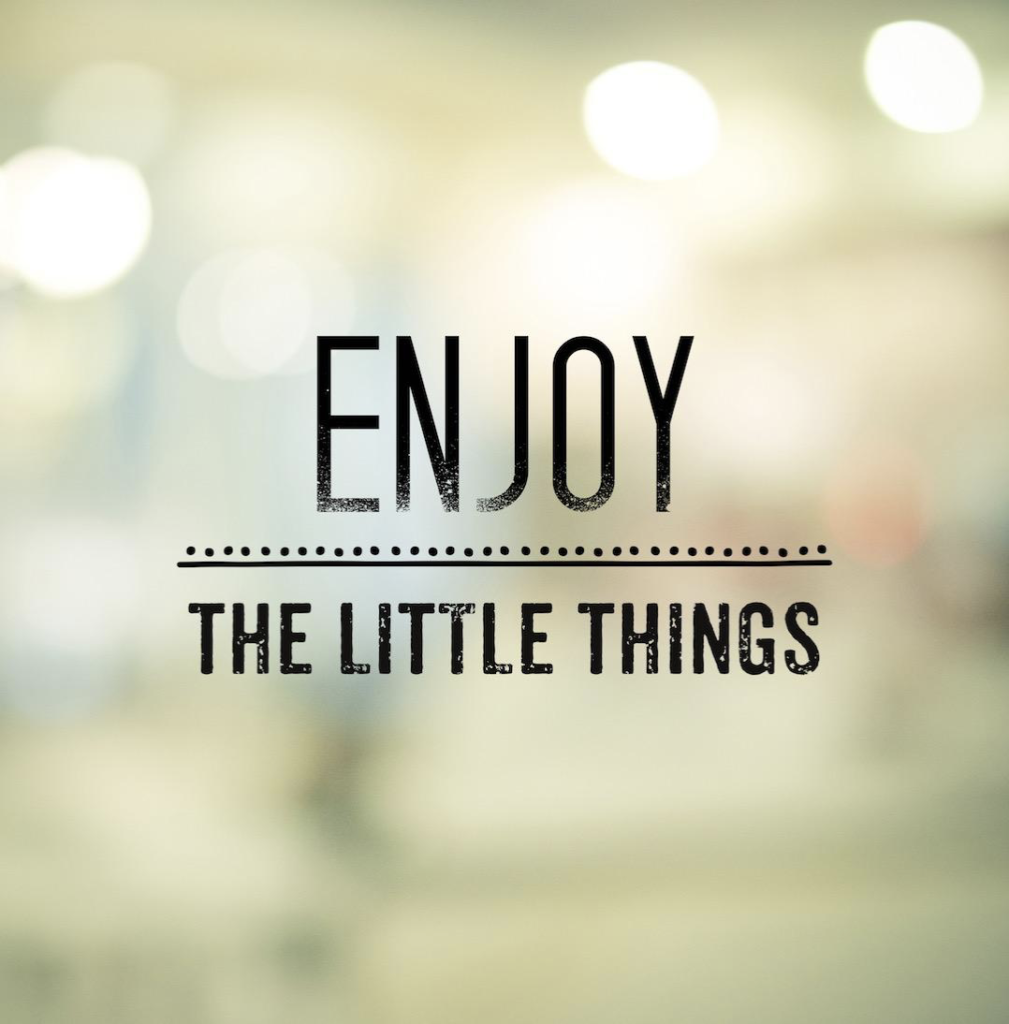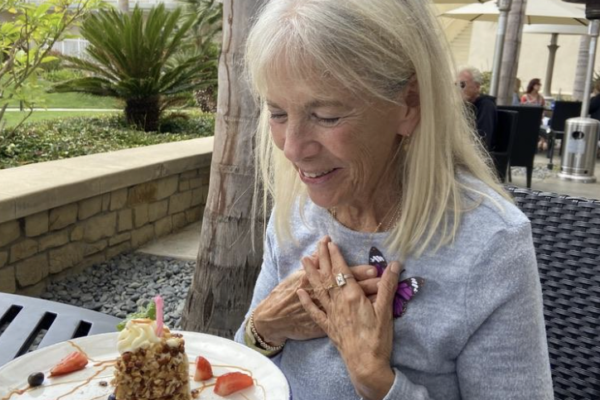The “pursuit” of happiness: is it really just an illusion?
Happiness is an essential concept to explore that’s timelier than ever, especially after this pandemic of ours. We see more and more people over 50 lonely, isolated, and estranged. This article explores the meaning of happiness and focuses on how to sustain happiness to the “end” of life.
Clearly, the notion of pursuing happiness was an important value to Thomas Jefferson. He wouldn’t say it in the Declaration of Independence, as a free and unrestricted declaration. The fact that it was included in this document made me think further about happiness as an inalienable right. Does it mean that everyone who is free in all respects is happy? Not necessarily.
Several years ago, talented designer, Kate Spade committed suicide. So did Anthony Michael Bourdain. On the outside, they had fame, and fortune, and were extremely creative. However, something happened that made them feel little hope for their happiness. It is one thing to experience happiness for a moment, and quite another to sustain the feeling of happiness throughout your life.
By sustaining happiness, you will experience a sense of joy, well-being, contentment, and satisfaction in the face of life’s challenges. Are you ready to adopt happiness as part of your everyday life – no matter what, and if so, what does it take?
What is happiness?
I want to pause briefly to take a look at the definition of happiness. Here are the three different ways happiness is defined:
1) A positive or pleasant mental or emotional state of well-being,
2) Reflecting a good life with a sense of meaning and deep satisfaction.
3) Experiencing joy and contentment.
The first aspect of the definition is owning a positive, pleasant, mental or emotional state of well-being. It does not say it’s dependent on outwardly things, but simply one’s state of being. This may seem reasonable enough, however, you may find it a challenge to figure out how to be happy.
Perhaps your family didn’t include the notion that happiness and being happy are always possible. Without a familial role model, it would make sense that negative patterned thinking would seem “normal” for you.
During our parents’ and grandparents’ age and time, divorce was shameful and not acceptable. Yet they continued to stay together, but not with positivity, but with happiness snuffed out of them long before. They “settled” for less than wonderful, because frankly, they didn’t know they could change it. That environment can easily make you carry that pattern in your life and family.
So, how do you live now? Can you reflect on a good life with a sense of meaning and deep satisfaction, when you don’t have a happiness template as your foundation? Since everyone has his or her own different journey, the ways to generate happiness are also different. In other words, what makes you happy (momentarily or not), may not make another person happy. And what may have made you happy when you were younger, may not be the same today.
Happiness can be seen as a temporary or superficial emotion. It can be a deep lasting feeling, fueled by unconditional and permanent love that does not waiver. Love for self and all is a state of being, resulting in inner joy, life satisfaction, and a sense of well-being.

Why your 50s may not be as “happy” as you hoped and what you can do about it.
It’s no small task to review the first 50 years of your life. How much of what you did and lived was of your complete choosing? In other words, did you live according to your own vision or according to how someone else wanted you to live? Did you hold back from following your heart?
If you followed your heart and lived according to your own vision, then happiness was part of your experience. If not, then you may feel disappointed and judge yourself for not living the life you wanted to live, so happiness eludes you.
If you want to feel happiness, start by imagining and envisioning what that would feel like inside of you. Ask yourself what actually brings you joy and contentment. Then allow yourself to take notice of how much time you spend doing what brings happiness. Also, appreciate what you have – no matter how small or humble.
Set aside thoughts about the things you don’t have that bring you down. Take a pause to look up in the sky, and value the sunshine, raindrops, and stars so you feel a sense of gratitude.
Take a breath and love that you are able to breathe – no matter what that involves – let yourself feel grateful to be alive. If you’re a grandparent, read a story to your grandchild. Today’s technology allows for distances to no longer be an issue through various forms of communication. By making someone happy, you make yourself happy too.
Taking brief moments to be appreciative of what you have is to feel happy. Be aware of this moment and be truly present. That’s the gift. Being over 50, you have the opportunity to awaken to what you want in your life for the next 50 years. Find out what puts a smile on your face when you wake up in the morning. Don’t be hard on yourself, or keep alive any bitterness from the past and avoid indulging in feeling blue.
Everyone has those blue days or blue moments. It’s when those days turn into years of unhappiness that need attention. Time to be kind and gentle with yourself and make a decision to be happy. And own an attitude of positivity and be good-natured.
It’s never too late. Everything is a decision, and your decision – it’s all in your power. Be mindful, however, that not everyone has the desire to change their wiring for happiness either. Some people will never see themselves as happy and are gloomy– to them, that’s normal.
Sometimes there are small things to be happy about, and then they’re back to their negatively-bent personality. Throughout childhood, their personalities exude a low-grade depression, and their “bad” mood becomes dominant. They carry this pessimistic personality into their mature years too. Then people start to refer to them as grumpy.
Maybe you’ve known some grumpy older people who just stay grumpy. Hormones can affect all areas: mental, emotional, physical, and spiritual. If you’re constantly feeling off, feeling blue, or slightly depressed you should talk to your doctor about it. It could be a chemical-hormonal imbalance or a habit that seems hard to break.
Consider happiness as a value, like love, integrity, honesty, truthfulness, or kindness. A sense of purpose can be as simple as being a loving, kind, and happy human being. Everyone is different, of course, and has a different priority in what values they value more than others.
There are people for whom happiness is not a priority, who spend their time fighting for their limitations. They are unhappy and flat-out miserable, (which is usually caused by someone else, according to the unhappy person). They have the contagious disease I call, “Fingerpointyitus,” where everything negative that happens to them is someone else’s fault.
These people never take responsibility for their own happiness. It seems easier to complain and point out fingers, rather than look at their own choices to “stay” unhappy. Do you know anyone like this?

We’ve touched upon the fact that some people grow up in family environments that have no role models for happiness, carrying into adulthood, resulting in feelings of despair and shame. They even feel guilty for feeling happy. As if they don’t deserve happiness, because their parents weren’t happy, or grandparents.
How can you shift your mindset from thinking you don’t deserve happiness to know that you do?
If Thomas Jefferson was correct that happiness is an inalienable right for all individuals. Believing they have no right to happiness is an untruth, they don’t know it, because they have no reference point.
How do you go from believing you have no right to happiness to believing you do? It begins with a decision, and that decision states it’s okay to be happy. Human happiness is a worthy experience, having a positive outlook helps to navigate life’s journey with a sense of fulfillment.
The possibility of experiencing happiness is given to everyone. You just need to recognize it and make the decision to live from that perspective (or not). What’s important to remember is whatever emotion you invest in carries energy or vibration and that energy is contagious, attracting more of what you want or don’t want.
Everyone’s definition of happiness differs, so find out what it means to YOU.
What is the meaning of happiness for you? Is it work satisfaction? Is it financial stability? Is it being fulfilled with creative expression? Is it to be loved? What determines your happiness and how can you have it?
It’s true that some people are more fortunate financially than others. Some people grow up in a humble households and yet they are happy. You may certainly know of people who are older and even sick, but their attitude reflects a positive nature, with a consistent sense of well-being. They somehow, in some way, made a decision to be happy and see only the good in everything.
Some people grow up in wealthy households, given opportunities for successful living right off the bat, and they are not happy. I have met people who grew up extremely wealthy, being driven to school as children in a limousine and being ridiculed and laughed at in school. They never knew if their classmates really wanted to be friends with them for who they were or because of family wealth. Many celebrities experience this.
The state of happiness is a decision. The commitment you make to yourself for the way in which you live your life will result in you feeling satisfied and content, with a sense of well-being and a natural positivity to guide your way. What could be better than this?
Happiness may be different over 50. It could even be the simpler things in life that bring you happiness, rather than the material things you once thought were so important. Jonathan Rauch, the author of The Happiness Curve, says the secret to happier years ahead is that we have shifted away from competition and ambition and moved towards connection and compassion. Look at the values you hold dear and evaluate and activate your life according to what you value.
You don’t need a lot to be happy; keep it simple.
I picked up a book for my daughter, called, Happiness Is… 500 ways to show I love you. It was geared toward couples. You could open up to any page of the book and find something that brings happiness, like walking together in silence, loving your weird relatives, dressing up for each other, having a lazy weekend together, feeling protected and safe with each other, or re-telling the story of how you met.
Simple things, when we notice them, can infuse us with a feeling of happiness. You just need to be mindful and aware of those little things that put a smile on your face. If you’re alone, actively seek someone with whom to share the things that make you happy, and it’s never too late to bond deeply with a new friend or find love.
As you explore these notions of happiness and the attitude you need to sustain the sense of well-being, you may even begin to make peace with areas in your life that need healing.

Keep your thoughts positive, because they will turn into reality.
The principle of calling energy back to you is called the Law of Attraction, which is the ability to attract into your life whatever you are focusing on. Since we, as humans, are susceptible to the laws which govern the Universe, including the Law of Attraction, this law uses the power of the mind to translate whatever is in your thoughts, to your emotions, materializing them into reality sooner or later.
The concept that all thoughts turn into things is important to understand, because focusing on negative gloom and doom, will continue to bring you more of what you don’t want. When you focus on positive thoughts and have clarity of what you want to achieve, you will find a way to achieve them, accompanied by an action, leading to happiness.
Henry Ford said, “Whether you think you can or think you can’t, you’re right.” Scientifically speaking, we are electromagnetic energy beings, so thoughts and emotions carry a frequency of vibration. Thoughts create an electrical frequency of vibration and emotions create a magnetic frequency of vibration that draws the experience into one’s life.
It probably would surprise you to discover how much of an impact the Law of Attraction has on your everyday life, whether knowingly or unknowingly. We are like human magnets that send out our thoughts and emotions, attracting back more of what we have put out. The Buddhists called it, “Karma.” When you are not conscious, you can fall into a pattern of thoughts that keep your happiness at bay because the thoughts you think over and over again create patterns and neural pathways in your brain (whether positive or negative). Albert Einstein said, “Insanity is doing the same thing over and over, expecting a different result.”
You get to be mindful what you think and where you place your attention. Once you understand and adopt the simple principle behind the Law of Attraction, you can effectively practice using thoughts of positivity in your life, leading to personal happiness in many areas:
- Manifesting love and relationships
- Attracting money and wealth
- Improving your mental and physical health
- Attracting success and abundance
WIN-WIN!
Once you decide and are committed that happiness is an important value you cherish, and want to focus on as a priority in your life, then your attitude and actions will shift accordingly. When I wake up in the morning, even before I open my eyes, I consciously smile and hold it for a while. That not only feels good but also helps to set the dial for the day.
I even made up a game I played with my grandchildren when they were younger, seeing who could hold their smile the longest. For my then 8-year-old granddaughter, this was challenging at first, as her default button used to go into a sour mood, for whatever reason. The delight on her face when she won just touched my heart deeply and the side effects are her being happier. WIN-WIN! I also just discovered that meditating when you smile really adds something special to the experience. I am now calling it, “smiling meditation.”
A friend of mine conducted an experiment, where she would say good morning to people, wherever she was, engaging with others to get a response. Many people said good morning back, and to her surprise, many didn’t.
When you become the positive force in your life, that becomes contagious in a good way, and more times than not, people will respond in kind, and in fact, you will most likely uplift them. Understanding how the vibration and frequency of thoughts work, and help you to stay on the positive side of life, you look for others who are positive in nature and stay away from those who are not.

A grateful outlook leads to finding happiness at any age.
Finding contentment in life over 50 can be as simple as adopting a daily attitude of being grateful.
I met a man once who was in his fifties, and had a motorcycle accident. He was unable to function as he once did. He got a job as a window washer and described how he washed windows with so much pride, it was endearing. I also know a cleaning lady who whistles while she works. She lives a humble life in a humble home and she’s happy.
It’s not the work they both do, it’s how they do the work that they do, and they both do it with such a pleasant attitude that it’s a pleasure to be around them. They too takes pride in what they do and clean with a smile.
I have a friend who is 78 years old. His wife committed suicide after 15 years of marriage and left him with three children, the oldest was 20 (adopting the then 5-year old) He had restaurants and lost them, had money and lost it, had prostate cancer, and now lives happily in a mobile home near the beach. What a happy inner life he created. He’s the most down to earth, giving man and happy!
I recently asked him what makes him happy, and he said that he doesn’t let things bother him the way they used to, that he enjoys himself, his family, his friends, and just walking on the beach being grateful to be alive. He volunteers more, helps others, and has become a generous giving human being. He said his life used to be good, but now it is great because he is aware of how he does what he does.
Making a shift in your attitude from negative to positive thinking will make you more aware of your life and lead to happiness.
Negative energy is wired as a survival mechanism and it can also be a way to show you what you don’t want in life. However, when you are too steeped in negative energy, it becomes too much, and your life can be out of balance.
Shifting your attitude from a negative outlook to a positive one takes being conscious of your life. What’s important to remember is that if the negative thought patterns become too set in a neural pathway groove, then the pattern can actually become a reality, and will affect every part of your life, be it financial, physical, emotional, spiritual, or mental, resulting in estrangement, divorce, or even illness.
As humans, we contain both positive and negative energies, just like an electromagnetic field. It’s not possible to entirely get rid of negative energy, nor would you want to. It serves as a barometer of whether you feel good or bad and can guide you to where you’d rather be. You can, however, temper your negative thoughts so your way of being does not become overshadowed by compensating for not being happy. Here are some ways you can pursue happiness and temper your negativity:
- Make the decision to own the possibility of being happy and content, and be pleased just for the sake of it.
- BEing happy is your inalienable right, so reclaim it! Give yourself permission to have it!
- Do something silly and fun, for the FUN of it.
- Forgive yourself. Sometimes you are harsher on yourself than anyone else and that takes its toll, and keeps you feeling bad.
- Have compassion for yourself. Sincerely embrace everything about yourself with a gentle hand.
- Come from your heart and not your ego.
- Bring love into everything you do. That will increase your vibration and frequency.
- Bring honor, dignity, and regard into your life no matter what you are doing.
- Be aware when you are not happy and focus on something you appreciate.
- Be aware of your posture. When you stand straight with your head held high, it’s hard to be depressed and negative.
- Dance, listen to uplifting music and do something you love.
CONCLUSION
Happiness over 50 can affect your daily life all the way to the “end”. We all want to live a happy, peaceful life because it leads to having a peaceful death experience. It’s important to be aware of what happiness is and what makes you happy. You can make peace with life by deciding to be in a happy state of mind, knowing that contentment is possible.
Abraham Lincoln said, “Folks are usually about as happy as they make their minds up to be.” Do what it takes to make happiness an intricate part of your daily life, no matter how old you are. Being over 50 takes on a whole new perspective. You are more of who you are. You deserve to be happy and sustain happiness as a way of life. Take the time to find out what makes you truly happy, for there is nothing more important to do.
It’s your life. Enjoy the journey. And, remember to bring love into everything you do.





